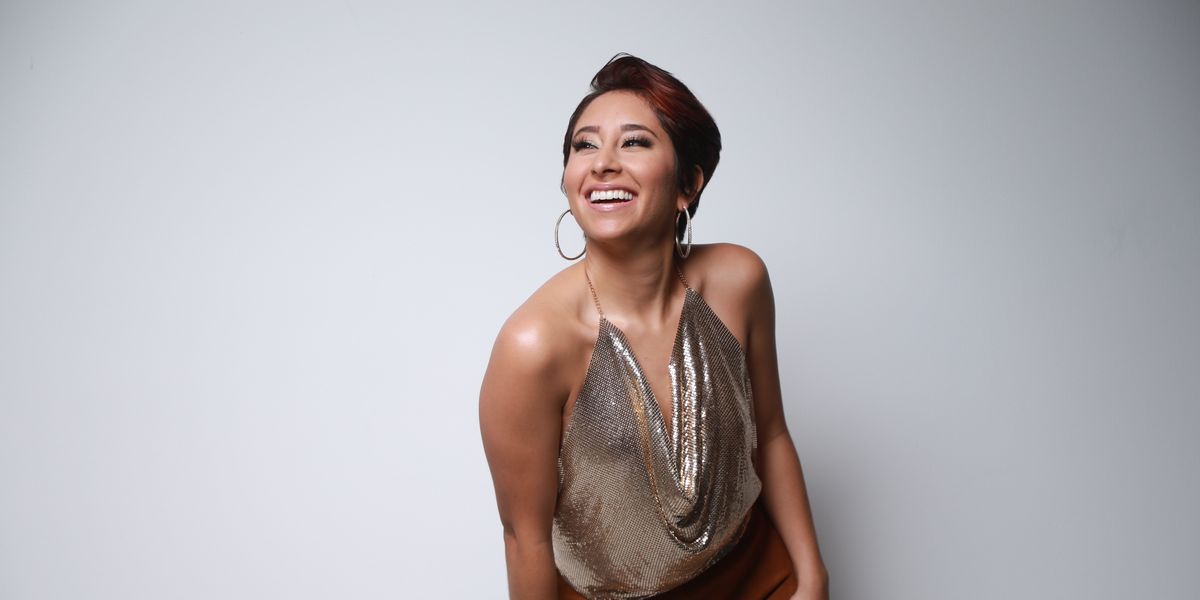Myth Busting: What Sarah Reich Wishes You Knew About Tap Dancers
When Sarah Reich tells people she’s a tap dancer, they sometimes do a bad imitation of tap in front of her, flashing their jazz hands and shuffling their feet around. “They think it’s funny, but it’s really rude,” she says. “Tap dancers hate it. They do it out of ignorance.”
Indeed, ignorance about even the basics of various dance forms is rampant. And it’s not just outsiders to dance—even within the field, it can feels like we’re segmented into genres and geographies and don’t know as much about each other as we should. That’s why we’re launching a new series, called “Myth Busting,” where we talk to dance artists from across the field about the myths, misunderstandings and misconceptions that plague them, and what they wish more people knew about what they do.
First up: Reich, who has made a name for herself through collaborations with Postmodern Jukebox and fellow tap dancer Melinda Sullivan (with whom she’s one half of the Sole Sisters), as well as her tap music album, New Change. We talked to Reich about why the greater dance world is still uneducated about tap, and what makes tap dancers tick:
What are the biggest misconceptions you hear about tap dancers?
“We hear the saying that tap is a dying art form. I find it funny that people feel that they can just say that when they’re not even in the world. I used to get very defensive and then I realized that what they’re really saying is, ‘How cool is tap? We should be seeing it everywhere.’
“It’s an underground art form, that’s why you don’t know about it. But take it from me that tap is alive and well. It is thriving. For a while, they weren’t wrong. Tap dance did decline in popularity, but it was always around.
“They only know Gene Kelly and Fred Astaire, they don’t know about Bill Robinson or Jimmy Slyde, who were really killer tap dancers who didn’t get that type of recognition mainly because they were black.
“A lot of people don’t even know that tap is American. Even jazz musicians don’t even know the importance of tap dance as part of their culture. Do you know that every jazz band had a tap dancer in the 30s? Things have gotten lost in translation over the decades. We’re still trying to get our community recognized and I think that’s where this ignorance comes from.”
Why are these misconceptions harmful?
“We’re still trying to make a living doing this. We want to be able to sell tickets. We want gigs on the regular. We want to be touring. A lot of times people aren’t even thinking about us, like, we should have a tap dancer in this movie or in this music video or on Broadway. Some of these Broadway shows, the tap is not of a high caliber, Even within our dance community it’s still tough. Tap is at the bottom as far as the respect in the dance world.
“For dance majors, tap is an elective. But tap you can do forever. Tap is music, tap is American. Why aren’t we giving it enough value?”
What do you wish more people understood about tap dancers?
“We’re a tribe of very specific people, and I don’t say that lightly. I really think that there is a spirit that you have to have to be a tap dancer. Anybody can go to the store and buy a pair of tap shoes, but to be involved in the community, it’s an investment. You have to have a respect for it. You have to have a mentor. It’s a hand-me-down art form.
“You can tell a dancer who is trained on the West Coast from one who has trained on the East Coast. It’s really cool to see these pockets of studying and carrying on a legacy. It’s like the way tribes are, they have their own language.
“I think a lot of tap dancers consider the art form like a religion. If you go to a tap festival, we hang out after class, we jam, we just want to be around each other and you just don’t see that in other dancers. No matter where I travel when I teach, we’re hanging out at the restaurant an hour after they’re closed. Our masters and legends hang out with us. There is no ego. I think a part of that is our African roots.”




